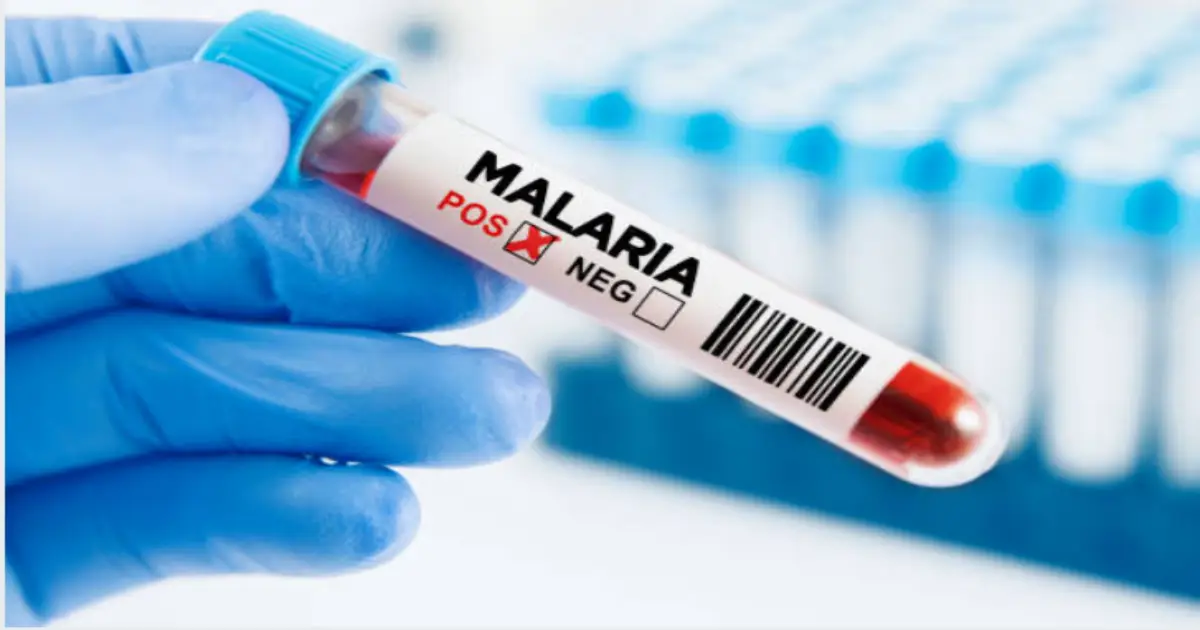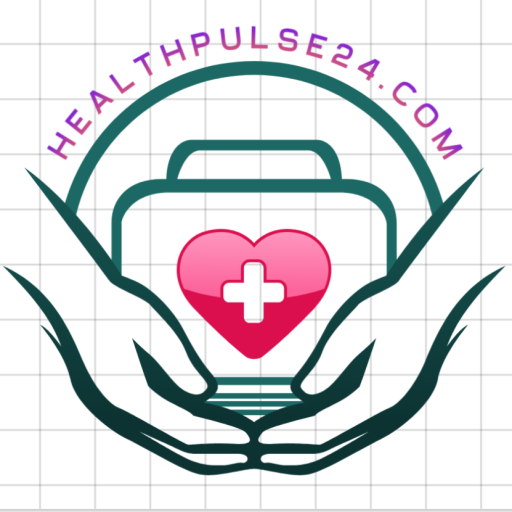Malaria is a life-threatening disease caused by Plasmodium parasites, which are transmitted through the bites of infected female Anopheles mosquitoes. According to the World Health Organization (WHO), malaria caused approximately 619,000 deaths in 2021, predominantly affecting sub-Saharan Africa. Understanding malaria is crucial for prevention, early diagnosis, and effective treatment.
What is Malaria Disease? (Definition & Quick Facts)
Malaria is an infectious disease characterized by fever, chills, and flu-like symptoms. It is caused by Plasmodium parasites and transmitted through mosquito bites.
Quick Facts:
- Cause: Plasmodium parasites (P. falciparum, P. vivax, P. ovale, P. malariae, P. knowlesi)
- Transmission: Anopheles mosquito bites
- Global Impact: 247 million cases in 2021 (WHO)
- Most Affected Regions: Africa, South Asia, South America
Malaria Symptoms & Warning Signs
Common Symptoms:
- High fever
- Chills and sweating
- Headaches
- Nausea and vomiting
- Muscle aches and fatigue
- Jaundice (yellowing of skin and eyes)
Causes & Risk Factors
Common Causes:
| Cause | Explanation |
|---|---|
| Plasmodium Parasite | Primary pathogen causing malaria |
| Mosquito Bites | Infected female Anopheles mosquitoes transmit the parasite |
| Blood Transfusion | Rare, but malaria can spread through contaminated blood |
Risk Factors:
| Risk Factor | Explanation |
|---|---|
| Geographic Location | High prevalence in tropical regions |
| Age & Immunity | Children and pregnant women are more vulnerable |
| Travel to Endemic Areas | Increases the risk of infection |
Types & Classifications of Malaria
| Type | Symptoms | Severity | Treatment |
|---|---|---|---|
| P. falciparum | Severe symptoms, high fatality | High | Antimalarial drugs |
| P. vivax | Relapses common | Medium | Chloroquine, primaquine |
| P. malariae | Milder symptoms | Low | Antimalarial drugs |
Who is Most at Risk?
- Infants and young children
- Pregnant women
- Travelers from non-endemic areas
- Immunocompromised individuals
3 Stages of Malaria Disease
| Stage | Symptoms | Recommended Treatment |
|---|---|---|
| Cold Stage | Chills, shivering | Fever management |
| Hot Stage | High fever, headache | Antimalarial medication |
| Sweating Stage | Sweating, fatigue | Rehydration, recovery |
Complications & Long-Term Effects
- Cerebral malaria (brain infection)
- Organ failure (kidney, liver)
- Severe anemia
Diagnosis & Medical Tests
| Test Type | Purpose | Accuracy | Cost |
|---|---|---|---|
| Microscopy | Parasite detection | High | Moderate |
| Rapid Diagnostic Test (RDT) | Antigen detection | Medium | Low |
| PCR Test | DNA detection | High | Expensive |
Malaria Treatment Options
Conventional Treatments:
- Antimalarial Drugs: Artemisinin-based combination therapies (ACTs)
- Hospitalization: For severe cases
Home Remedies & Natural Solutions:
- Ginger and turmeric (anti-inflammatory properties)
- Herbal teas (boost immunity)
Best Diet for Managing Malaria
| Foods to Eat | Foods to Avoid |
|---|---|
| Leafy greens, citrus fruits | Processed foods |
| Hydrating fluids | Caffeinated drinks |
Lifestyle Changes for Prevention
- Using insecticide-treated bed nets
- Wearing long sleeves and insect repellent
- Eliminating mosquito breeding sites
Alternative Therapies
Alternative therapies for malaria have been explored in different cultures and traditional medicine systems. While these therapies should not replace conventional medical treatments, they may provide supportive care and relief from symptoms.
1. Acupuncture
Acupuncture, a traditional Chinese medicine technique, involves inserting fine needles at specific points in the body. It is believed to help with fever management and boost immune function, although scientific evidence supporting its direct effect on malaria is limited.
2. Herbal Medicine
Many herbs have been used in traditional medicine to manage malaria symptoms. Artemisia annua, also known as sweet wormwood, is the source of artemisinin, a key component of modern antimalarial drugs. Other herbal remedies include neem, quinine bark, and feverfew, which have been used for centuries to combat fever and infections.
3. Homeopathy
Homeopathy uses highly diluted substances to stimulate the body’s natural healing processes. Some practitioners claim that certain homeopathic remedies help alleviate malaria symptoms, but there is no strong scientific evidence to support their efficacy.
4. Ayurvedic Remedies
Ayurveda, an ancient Indian medical system, incorporates natural herbs and dietary practices to combat infections. Common Ayurvedic treatments for malaria include the use of Guduchi (Tinospora cordifolia), Tulsi (Holy Basil), and Kalmegh (Andrographis paniculata), which are known for their immune-boosting and antipyretic properties.
5. Meditation & Yoga
Stress and weakened immunity can contribute to prolonged illness. Meditation and yoga may help improve overall well-being and strengthen the immune system, making the body more resilient against infections.
While alternative therapies can be helpful in managing symptoms and improving overall health, they should be used in conjunction with prescribed antimalarial treatments. Always consult a healthcare professional before using alternative treatments.
Prevention: How Can I Prevent Malaria?
Preventing malaria involves a combination of personal protection, environmental control, and medical interventions. Here are the key strategies to prevent malaria:
1. Mosquito Control Measures
- Use insecticide-treated bed nets (ITNs) to prevent mosquito bites while sleeping.
- Apply mosquito repellents containing DEET, picaridin, or lemon eucalyptus oil.
- Wear long-sleeved clothing and pants to minimize skin exposure.
- Use window screens and mosquito-proof housing to keep mosquitoes out.
2. Environmental Control
- Eliminate standing water to reduce mosquito breeding grounds.
- Participate in community-based mosquito control programs that spray insecticides.
3. Preventive Medications
- Travelers to malaria-endemic areas should take antimalarial drugs like doxycycline or atovaquone-proguanil as prescribed.
- Pregnant women in high-risk areas may receive intermittent preventive treatment (IPT) to reduce infection risk.
4. Vaccination
- The RTS,S malaria vaccine is now available in some countries to provide partial immunity against malaria.

5. Public Awareness & Education
- Educate communities about malaria symptoms and prevention methods.
- Encourage early medical intervention for suspected malaria cases.
For more prevention tips, visit Malaria No More.
Medications vs. Natural Remedies
| Treatment | Effectiveness | Side Effects | Cost |
|---|---|---|---|
| ACTs | High | Nausea, dizziness | Moderate |
| Herbal Remedies | Variable | Minimal | Low |
When to See a Doctor
- Persistent high fever
- Severe vomiting
- Difficulty breathing
Myths & Facts About Malaria
Myth: Malaria is only found in Africa.
Fact: Malaria exists in South America, Asia, and the Middle East.
Frequently Asked Questions (FAQs)
Can malaria be cured?
Yes, with proper antimalarial treatment.
Is malaria contagious?
No, it is not spread person-to-person.
How long does malaria last?
It varies but typically lasts from 7 days to a few weeks.
Can malaria come back?
Yes, P. vivax and P. ovale can cause relapses.
Is there a malaria vaccine?
Yes, the RTS,S vaccine is available.
How is malaria diagnosed?
Through blood tests like microscopy and RDTs.
Can you get malaria from drinking water?
No, malaria is transmitted by mosquito bites.
What are the early signs of malaria?
Fever, chills, and headache.
Can pregnant women take malaria medication?
Yes, but only specific antimalarial drugs deemed safe.
How can malaria be prevented?
By using insect repellents, mosquito nets, and taking prophylactic medication.
Case Studies & Success Stories
Real-life experiences provide valuable insights into how malaria affects individuals and how proper treatment leads to recovery. For instance, in Uganda, a young child diagnosed with severe malaria received timely artemisinin-based treatment, which helped her recover fully within a week. Similarly, a traveler returning from West Africa experienced high fever and chills but was diagnosed early and successfully treated with ACTs. These success stories highlight the importance of early detection and appropriate medical intervention in overcoming malaria.
Impact on Different Age Groups
| Age Group | Common Symptoms | Best Management Strategies |
|---|---|---|
| Children | High fever, convulsions | Early diagnosis, prompt treatment |
| Adults | Fatigue, joint pain | Medication adherence |
| Seniors | Chronic complications | Continuous monitoring |
Connection Between Malaria and Mental Health
- Malaria-induced anxiety and PTSD
- Emotional distress from recurring infections

Malaria not only affects the body but also has significant implications for mental health. The prolonged physical suffering caused by recurring fevers, severe fatigue, and potential complications can lead to psychological distress, including anxiety and depression. Studies have shown that individuals who experience frequent bouts of malaria, especially in endemic regions, are at higher risk of developing mental health disorders.
Additionally, cerebral malaria—a severe form of the disease—can cause neurological complications, including seizures, cognitive impairments, and long-term behavioral changes. Children affected by cerebral malaria may suffer from learning disabilities and developmental delays, further impacting their mental well-being.
Furthermore, the economic and social burdens of malaria, such as loss of income due to illness and high medical costs, can lead to stress and emotional distress in families. Mental health support, alongside malaria treatment, is crucial for holistic recovery. Addressing both the physical and psychological aspects of the disease ensures better overall health outcomes for affected individuals.
Future Research & Emerging Treatments
- New vaccine developments (RTS,S)
- Genetically modified mosquitoes
Summary Table for Quick Takeaways
| Section | Key Takeaways |
|---|---|
| Causes | Mosquito bites, Plasmodium parasites |
| Symptoms | Fever, chills, nausea |
| Treatments | Antimalarial drugs, home remedies |
Malaria is a preventable and treatable disease. Awareness, proper medication, and preventive measures are key. Stay informed and take necessary precautions to protect yourself and your loved ones.
📢 Subscribe to our newsletter for more health tips!









